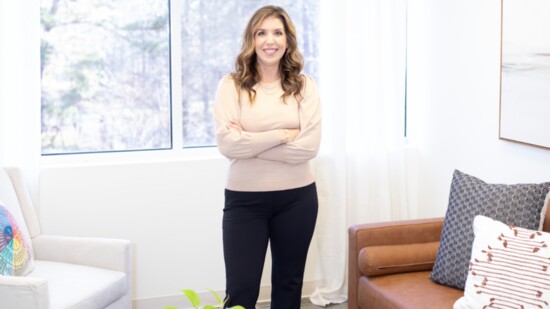Michelle Rathburn
What are the most common sources of stress people face during the holiday season?
Expectations—either self-imposed or set by others—can be overwhelming. Whether it's striving to host a Pinterest-worthy holiday party, purchasing every gift on a child's Christmas wish list, or filling the calendar with too many events, burnout at the end of the holiday season is very common due to trying to do too much.
How do you typically advise your patients to manage the heightened expectations and demands during this time?
In these situations, I encourage my clients to focus on setting healthy patterns of communication and boundaries with others, as well as creating realistic plans that support their mental and physical well-being.
Do you notice any particular groups, such as parents or those with financial concerns, struggling more with holiday stress?
The holidays bring a wide range of emotions for many people, particularly those who have recently lost a loved one and are experiencing their first holiday without that person. I also notice that parents experience heightened stress during this season. There can be pressure related to gift-giving, holiday spending, and the expectation for parents to create memorable experiences for their children. I work with these clients to help them find meaningful ways to celebrate that align with their values and resources.
What roles do family dynamics play in holiday stress?
Family dynamics play a significant role in holiday stress, as past tensions, unresolved conflicts, or differing beliefs and values can resurface during gatherings. I often recommend that clients prepare ahead of time by identifying potential stressors and planning ways to respond calmly and assertively. It’s important to focus on what can be controlled—such as one’s reactions—and to allow space for breaks when needed.
What strategies do you suggest for managing feelings of loneliness or isolation during the holidays, especially for those who may not have family around?
Many people struggle with loneliness during the holidays. Create community—find ways to remind yourself that you're not alone. We are fortunate to live in a thriving community with many opportunities to meet people and establish healthy connections. In today’s world, technology is a gift that can help bridge the gap when in-person visits with friends and family aren’t possible. It is important to plan ahead—create a schedule of enjoyable activities, whether it’s a holiday-themed movie night, an outdoor walk or golf cart ride through a neighborhood holiday light display, or making a favorite holiday meal.
How do you encourage patients to be mindful of their mental health and well-being during the holidays?
Create a daily self-check-in by asking yourself these questions: 'How am I feeling physically and emotionally right now?' 'What do I need at this moment to feel more balanced or at ease?' 'What is one thing I am grateful for?' and 'Am I staying connected to people who support and uplift me?'
What are some simple self-care practices people can adopt during the holidays?
Just a few minutes of deep breathing, prayer or meditation, and time for self-reflection can help you stay grounded. Movement is also essential—whether it’s a short walk, gentle yoga practice, or a gym workout, physical activity can relieve stress and reset the mind. I also encourage clients to prioritize sleep, maintain regular routines, and say 'no' when they feel overwhelmed amid the demands of the season.
For more information, go to somacounselingwellness.com.
"It’s important to focus on what can be controlled—such as one's own reactions—and to allow space for breaks when needed."
